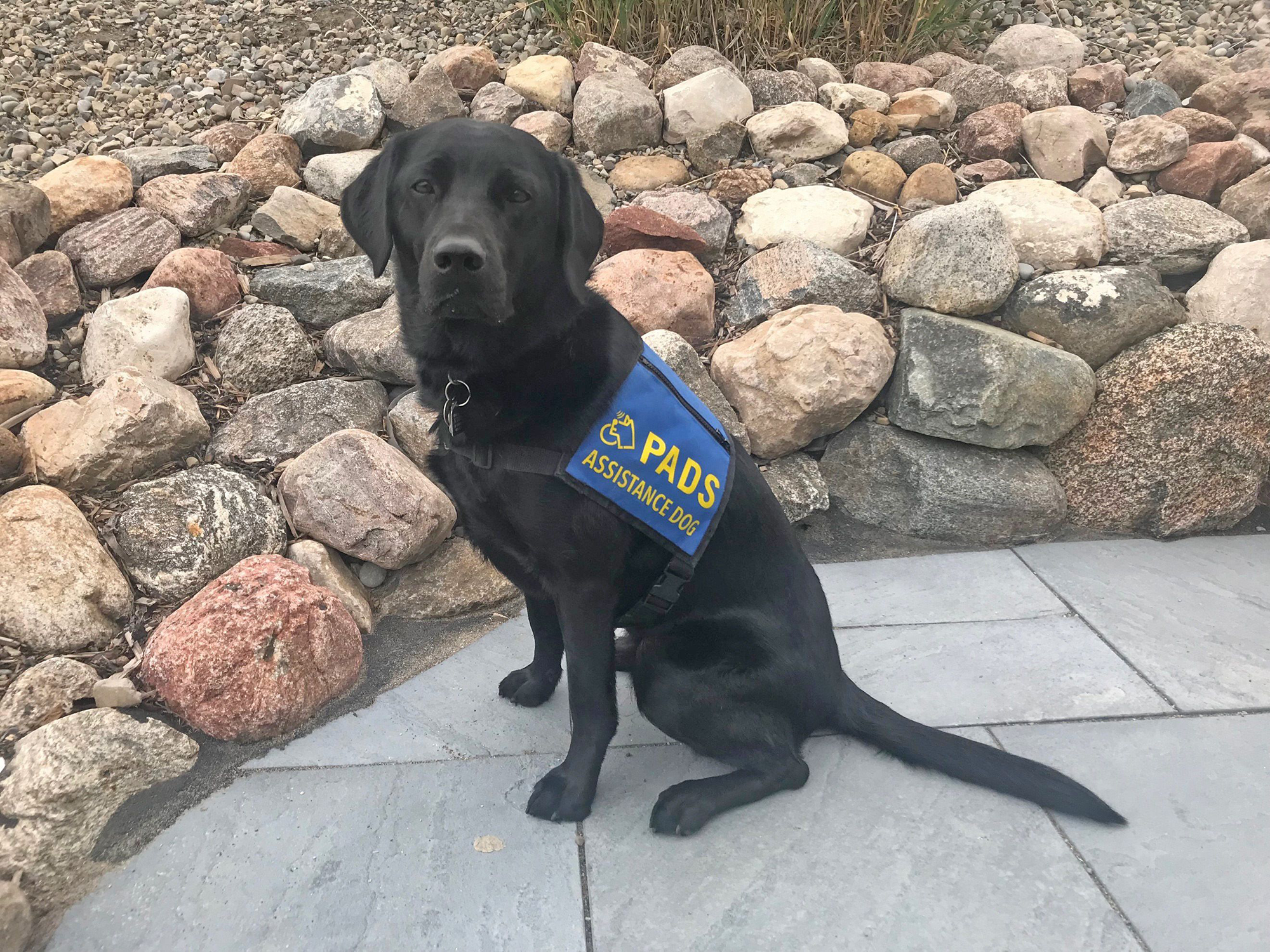April 30th is National Therapy Dog Day, and one of the questions our staff, trainers and volunteers often get asked is this: What is the difference between an Accredited Facility Dog (AFD) and a Therapy Dog?
The analogy we like to use is that a Therapy Dog is to an Accredited Facility Dog as a Candy Striper is to a Nurse (for those of you who may not know, “Candy Striper” was a name given to volunteers in hospitals in the 50’s and 60’s, because of the red and white striped uniforms they wore).
Both are incredible humans that do vitally important work to care for sick people. The Candy Striper brings a kind and caring personality and a few hours of orientation time to their role, which is typically a few hours or days a week to bring smiles to patients. The nurse has gone through years of education and training an has the fortitude to support patients day-in-day-out as a career.
BORN & BRED FOR GREATNESS
PADS dogs are specifically bred for this type of work, with parents selected for their ability to remain calm in new situations that are often full of large emotions and even chaos. Probably most importantly they are bred for resilience – to be those special dogs (like the special people who work in these helping industries) who are able to do the full-time work without it taking a physical and emotional toll. Part of the selection process for AFD’s is to not only identify dogs that are good at the work but also to identify if they are naturally able to “shake off” the stress at the end of the day. Placing a dog in a full time role that isn’t able to do so would not be ethical or responsible.
TRAINED FOR EVERY SITUATION
PADS AFDs are trained for almost two and a half years, and throughout this process they are frequently assessed to ensure they have the right temperament, health, and the unique personality traits required of an Accredited Facility Dog. These traits include a calm, quiet demeanour, a willingness to engage with people of all ages, and rather than being nervous around people displaying sadness, anger, and anxiety, are naturally drawn to them.
Training begins the day the dog is born, with specific handling exercises and stimulation that teach the pup the world is a safe but ever-changing place. Then, from about 8 weeks to 18 months, they live with volunteer Puppy-Raisers who socialise them to the world and teach them house manners and some basic skills. Then at around 18 months, they go through a formal assessment process to see if they are ready to move into Advanced Training. Once in Advanced Training, their skills are further refined by professional dog trainers so that when they are matched with a client, the team can confidently pass a public access test. The successful passing of this rigorous test allows these teams to be invited into areas where pets are not usually allowed, such as schools, courtrooms and various medical facilities.
In contrast, Therapy Dogs are well behaved and even-tempered pet dogs with good obedience and manners around people.
Unlike dogs from accredited Assistance Dog organisations, which have to pass international accreditation standards (in PADS’ case Assistance Dogs International), therapy dogs are not as highly regulated. They must be well trained and evaluated, but the process is often an hour or two assessment of their training and temperament.
CELEBRATING THE POWERFUL THERAPEUTIC BENEFIT OF OUR CANINE FRIENDS
Countless therapy dogs volunteer with their humans across our communities every single day. These dogs bring joy and smiles wherever they go and are able to give generously as volunteers. To learn more about Therapy Dogs (or to get involved with your own amazing pet) check out Pets & Friends or St Johns Ambulance Therapy Dog Programs.
To catch a glimpse of one example of the valuable work done by Accredited Facility Dogs check out this video about PADS AFD Gaia who works full time at Canuck Place (note the reporter refers to her incorrectly as a Therapy Dog but the feature certainly highlights her extraordinary impact!).
Another interesting resource is the Justice Facility Dogs Canada website which highlights the work of dozens of Accredited Facility Dogs across Canada. These dogs work alongside their handlers in settings that only allow AFD’s due to the rigorous demands and sensitive needs of forensic interviews and courtroom work.
Today we celebrate the incredible benefit that both types of dogs bring to our communities!
Image: PADS Nessa

